
Press Reset - Review
According to Jason Schreier, the gaming industry delivers dreams on the backs of misery...
The video game industry is a goliath. An ever-reaching, ever-pleasing, multi-billion dollar empire. But like the Goliath of biblical fame, it’s also a brutal beast—a bully happy to abuse its lowly pawns and stewards. The workers, in other words, who actually create the games so adored by all.
It’s a rather inexplicable scenario, one hard to fathom from an outsider’s perspective. But Jason Schreier, author of Press Reset, does his due diligence to paint a convincing picture—of bright-eyed, eager artisans entering an industry that doesn’t love them in return. A corporate world that rewards its CEOs with millions of dollars in bonuses while treating the employees like underpaid serfs, like dime-a-dozen minions. Indeed, the Western gaming industry, as depicted by Schreier, is a heartless one of layoffs, of constant relocation, of comradery forged amidst constant doubt, pain, and upheaval. The everyman is the hero here; the CEOs, the accountants, the corporate boards…not so much.
And Schreier knows how to cherry pick his examples. Though the accounts he tells can splinter and overlap into an unwieldy read, the book’s overall scope centers on a handful of heartbreaking cases— Junction Point, the failed Warren Spector and Disney collaboration; Irrational Games, the now-rebranded Ken Levine effort; and 38 Studios, the dead studio founded and funded by baseball star Curt Schilling. Much of the book’s surrounding drama and disappointments spring from these talented but tragically doomed studios. And “tragic” is the best word to describe all three. That, and “travesty.”
Per Schreier’s examples, the gaming industry is a dour, thankless place despite the thousands of amazing people who work within it. Indeed, for most of the personalities featured, their time in the industry—often spanning years—feels more like a series of pit stops than anything resembling a normal career. A few do attain a “happy ending” at some point, but it’s still not without first suffering years of struggle, of company negligence or contracts left to expire. For some, the only answer is to leave the industry completely.
The accounts are fascinating and often eye-opening, but one can’t help but wonder whether Schreier is delivering the full picture. Is the industry truly this awful, or is the author biased toward a certain viewpoint, showcased here, through some artful selection and framing? No Japanese companies are featured, after all. No (seemingly) stable Western companies, either, from Wayforward to CD Projekt Red to Valve to Naughty Dog. Is life at these studios just as grim? Just as toxic? Schreier doesn’t say.
For those companies with obvious problems, however, the author does posit some tentative solutions. Unions. Remote working. Companies (like Disbelief) that exist to help other studios finish their games and ship them on time. These are valid assertions, of course, but why not look to the Nintendos and Capcoms of the world for a potentially better answer? Why not highlight their company cultures, identify what works for them, and try to emulate their style?
Regardless, Press Reset is a sobering warning for those considering games as a profession, and a fascinating inside-look for anyone else. Casual gamers might be better served with the more straightforward Blood Sweat and Pixels, the writer’s first book which focuses on the development of specific games. But for those who don’t mind a slightly convoluted tour of the industry’s darker side, Schreier successfully trades the glam for the grim, giving a face to all those poor souls who comprise a game’s ending credits.--D
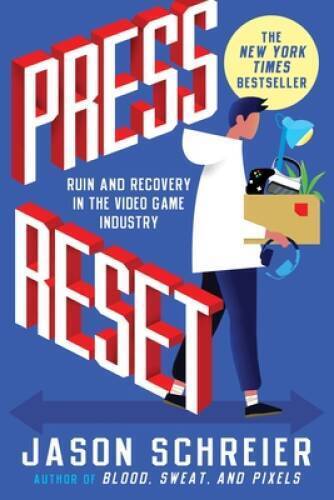

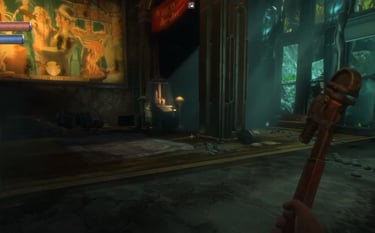

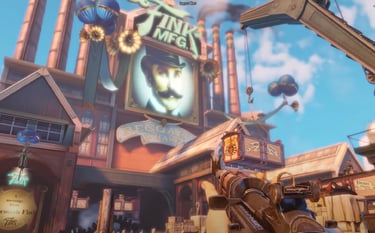

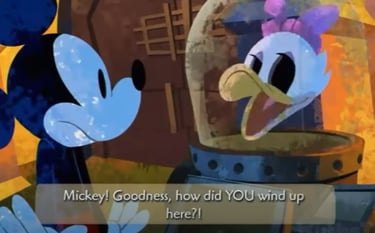

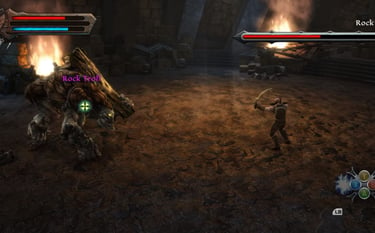

The cover to Schreier's sobering opus.
Irrational Games, the force behind the Bioshock titles, is one of the tragic tales. It was eventually disbanded after co-founder Kevin Levine chose to go his own way, starting a new company called Ghost Story Games.
Epic Mickey was Warren Spector's big project for Disney's Junction Point. It's oddly dark nature may have led to the game's overall tepid reception.
Kingdoms of Amalur was a success for 38 Studios/Big Huge Games. Nevertheless, the series was still axed and the team disbanded after launch.


Contact: lostnostalgiaproductions@gmail.com
Website: www.lostnostalgia.com
Like what we're doing? Please consider throwing us a dollar into our Patreon page's tip jar!


